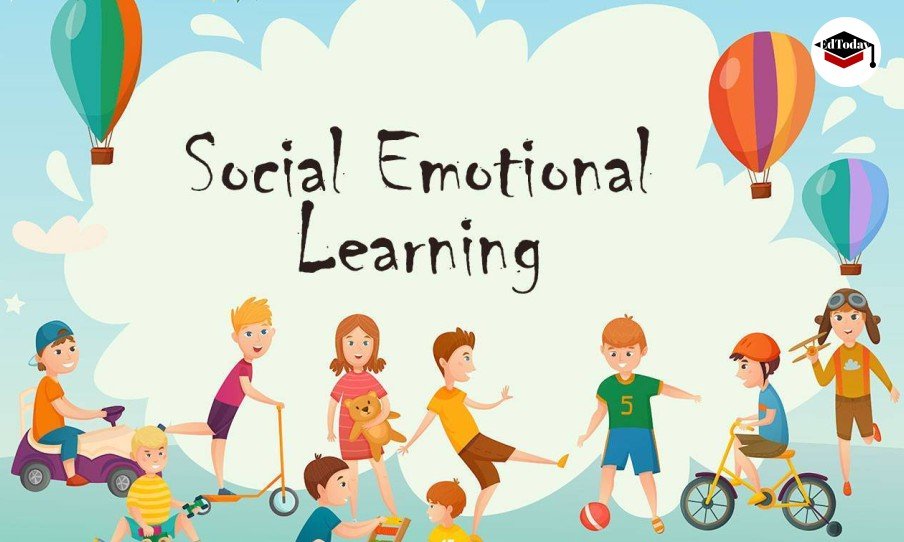Does Social-Emotional Learning Improve Academic Performance?

There is growing alarm about how the school can support learners not only to perform well academically but also emotionally. Social-Emotional Learning in schools has been ever more trendy as a means of enabling this core education. Still, the concern that typically follows is: Does SEL really make a difference academically?
Let us see the basics of SEL, the mechanism by which it operates, and whether or not it indeed makes a difference in academic accomplishment.
What is Social-Emotional Learning?
At its core, Social-Emotional Learning in schools is educating kids to manage their feelings, build positive relationships, make sound decisions, and deal with challenging situations. SEL programs tend to focus on five areas: self-awareness, self-management, social awareness, relationship skills, and responsible decision-making. All these skills help students deal with feelings and navigate life in a healthy way.
Schools have begun including SEL as part of the curriculum to teach children the abilities to succeed in life. Let’s face it: academic success is not only a matter of remembering facts and being able to pass tests. It’s also about how well they can regulate their stress, cooperate with one another, and make good decisions. And that is where SEL comes in.
How Does SEL Work in Schools?
Social-Emotional Learning in schools can vary depending on the school, but overall, it generally includes a balance of classroom sessions, group discussion, and even role-playing. The objective is to create an environment where children feel free to discuss their feelings and learn about managing them.
For instance, a teacher might use stories or role-plays as a method to teach students empathy. Alternatively, students might participate in group discussions where they listen actively and problem-solve. All these practices encourage students not only to care about their own feelings but also to understand and relate to others.
In most schools, SEL becomes a part of everyday routines. Teachers begin the day with short mindfulness exercises or class time talking about how to cope with challenges. By weaving SEL practices into everyday learning, schools are helping students build these skills over time.
The Connection Between SEL and Academic Achievement
Let us now get down to the core of the issue: Does SEL improve academic achievement? Yes, and research attests to that. While one may think initially that the correlation between emotional intelligence and academic accomplishment would be at best murky, or perhaps inconsequential, the truth is finally beginning to emerge that they are very closely tied.
As students are able to manage their own emotions and withstand stress, they are better able to focus on their school work. Emotional self-regulation, one of the most core areas in SEL, allows students to stay calm and focused even during such difficult academic issues. That is, they are less prone to be distracted easily due to anxiety, frustration, or anger, some of the most prevalent learning impediments.
Moreover, SEL also creates a sense of community and belonging in the classroom. Once students feel safe and supported, they will be more likely to care about what they are learning and be open to risks in their schoolwork. This positive classroom environment can lead to increased motivation and improved academic achievement.
Better Behavior Yields Greater Learning Success
A less straightforward but still substantial way SEL in schools contributes to academic performance is through its influence on student behavior. SEL programs reach many students by modeling self-discipline and allowing students to see the impact of their behavior. That results in fewer examples of behavior issues, including disrupting the class or fighting with other students.
With less distraction and improved classroom climate, students can pay more attention to their lessons. This creates a better learning environment for everyone, leading to improved grades and test scores. SEL also creates better communication skills, which can enhance students’ group work, questioning, and clarifying concepts, all of which are essential for academic achievement.
Social Skills and Collaboration Boost Learning
Teamwork and cooperation are highly valued in today’s education system. With SEL in schools, students are more able to work together. By developing relationship skills, students learn how to resolve conflicts better, talk through ideas, and assist one another. These are particularly valuable for group assignments, where respect for one another and teamwork are crucial to getting things done.
Moreover, as students grow in their social awareness, they learn to appreciate diverse perspectives. Not only does this improve their learning experience but also allow them to work better in teams with diverse backgrounds and thinking patterns. Being able to understand and relate to others is important in school settings as well as working environments in the future.
Long-Term Benefits of SEL
While the direct impact of SEL on classroom learning is clear, the benefits extend far beyond the school. Students who are taught SEL are more likely to be successful as adults. They are likely to have good careers, good relationships, and good emotional well-being.
By teaching students to manage their emotions, communicate effectively, and make responsible choices, SEL lays the groundwork for success in all areas of life. The skills that students acquire through SEL in schools programs are long-term investments that accompany them many years after graduation.
In short, Social-Emotional Learning in schools is not just a buzzword. It’s an asset that not only educates students about their emotions but also equips them with the skills they need to succeed in school and beyond. With SEL, students learn to manage their emotions, improve their relationships, and create a more positive school climate, all of which contribute to better academic performance.
As more and more schools implement SEL, it’s clear that emotional intelligence is just as important as academic knowledge. By being emotionally and socially nurtured, students can more effectively focus on academics, work well with others, and be their best selves. Yes, SEL really does improve academic success, and it’s a step in the right direction toward educating well-rounded, success-ready graduates.
